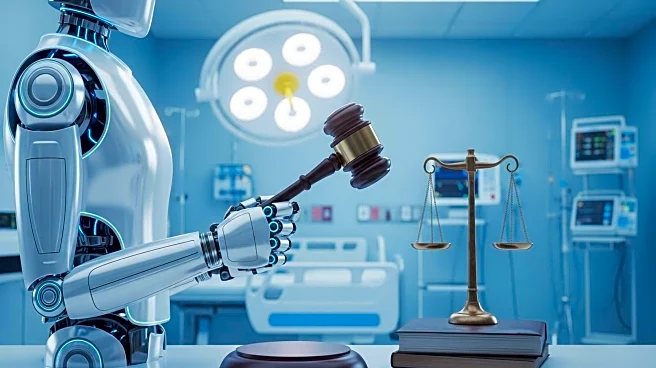What is the story about?
What's Happening?
Agentic AI, autonomous systems designed to perform tasks with minimal human intervention, is gaining traction in the healthcare industry. These systems are seen as potential solutions to reduce costs while maintaining care quality. However, Lily Li, a cybersecurity and data privacy attorney, highlights the risks associated with agentic AI. These systems can make critical decisions without human oversight, leading to potential errors such as incorrect prescription refills or mismanagement in emergency departments. Such scenarios could result in injury or death, raising questions about liability and insurance coverage in the absence of licensed medical professionals.
Why It's Important?
The integration of agentic AI in healthcare could significantly impact the industry by potentially lowering costs and increasing efficiency. However, the shift of responsibility from human providers to AI systems introduces legal and ethical challenges. Healthcare organizations must address these risks to prevent harm and ensure accountability. The potential for cybercriminals to exploit these systems further complicates the situation, necessitating robust security measures. The success of agentic AI in healthcare will depend on building trust and establishing clear guidelines for its use.
What's Next?
Healthcare organizations are advised to incorporate agentic AI-specific risks into their risk assessment models. This includes reviewing data quality to eliminate errors and biases, setting limitations on AI actions, and implementing security protocols. AI companies are encouraged to adopt standard communication protocols for encryption and identity verification. The future of agentic AI in healthcare will hinge on the industry's ability to manage these risks and foster trust in AI systems.
















